“Scouting Schools for Phase Two”
Koch Goma Primary and Koch Goma Central are two other schools that we have been considering as potential targets for scaling up this project. Each school has more than 1,000 students, and they are sorely in need of accessibility improvements.
The biggest differentiator between them is how prepared they are to become a host for the inclusion program that we have developed. Our program aims to strengthen the environment in terms of how welcoming it is for students with disabilities, but the program is not a silver bullet for the deep cultural stigma that prevents Acholi children with disabilities from being integrated into the community.
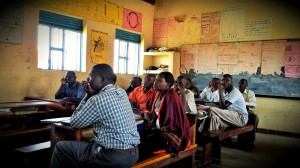
Teachers at Koch Goma Primary listening to Patrick
On July 16, I trained a group of teachers from Koch Goma Central with some of my colleagues from GDPU. Ojok Simon had to leave for a seminar in Rwanda and Patrick needed some assistance conducting one of the trainings.
GDPU had conducted an accessibility audit on these schools last year and wanted to provide them with feedback from their report. In addition to that, they setup a training program similar to the one we did in Tochi.
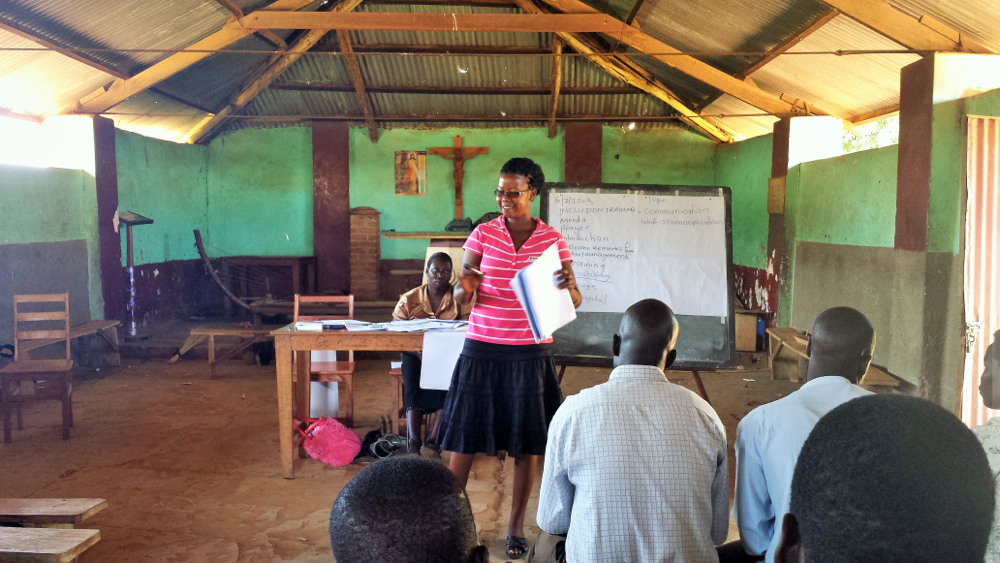
Emma, an office assistant at GDPU, discussing language and labeling with teachers at Koch Goma Central
Standing in front of these teachers, I saw firsthand how powerful the stigma, in Acholi culture, against people with disabilities is. The teachers at Koch Goma Central I tried to engage during the training were constantly pushing back at the ideas we discussed. For instance, we talked about the proper language and labels to use when addressing people with disabilities, but after that portion of the training, a few teachers raised their hand to tell us a story.
The teachers said that there was one student who everyone called by his nickname, ‘Mulema’. That nickname literally translates to “the one whose leg does not function.” The teachers claimed that the student was perfectly fine with this nickname and that everyone called him by it so they didn’t even know what his real name was. Therefore, they concluded that it was fine to call him by this name. After all, who were they to change this trend set in motion by the broader community?
I responded by telling them “why not simply ask what his name is?” They stared at me with a blank face as if the thought never crossed their minds. I told the teachers that due to their position, they had the ability and the responsibility to shape the lives of these students. They were leaders in the community and they did not have to take a backseat to circumstances like this. In fact, they were responsible for changing this trend by finding out what this student’s real name was and making sure everyone addressed him by it at school.
Still, the teachers would not accept this new paradigm I was encouraging. They told me that it is the parent’s responsibility to address this issue. They were simply paid to teach math, science, English, etc. Shifting the blame and the responsibility to others was a prevalent topic throughout our training.
On another occasion, I asked a male teacher to give me one idea for a daily activity that students with disabilities might struggle with. He told me that his idea was already said and when I pressed him for new ideas, he gave me that familiar blank stare.
After training, I met up with Patrick, who was simply electrified. The training he conducted went very well. Everyone was participating, and we found out that one of the teachers has a disability. Not only, does this school have a strong need for our program, but it also has the desire to become more inclusive and staff who understand the circumstances students with disabilities face.
When comparing the two schools as potential targets for scaling up the accessibility and inclusion program, it is easy to identify the variables that would contribute to success. Most importantly, the head teacher must be organized, motivated, and inspiring for other teachers to follow their lead. At one of these schools, that was clearly the case, but in the other, we quickly discovered it was not. Secondly, the staff must have a minimal level of disability sensitization and special needs training.
At the school Patrick was working in, there were 3 staff who received special needs training, but at the school I was working in, no one had received such training. It is because our program provides structural improvements and invests significant time and money into the school that these variables are crucially important. If we start investing in a school that is not ready to become inclusive, then the project will be doomed to fail.
“Updates from Tochi”
Thankfully, our work in Tochi has not encountered the kinds of problems I saw during this training. The head teacher is an incredible leader and the environment is ripe for this program to blossom into success.
The students at Tochi have been preparing for a poetry recital and an art competition. The head teacher has been so engaging and her leadership has helped to push the rest of the school to take an interest in the inclusion program. They have even started practicing the drama presentation for the Open Day Event! The plot for the drama will be focused on bullying in the latrines, and may even take some inspiration from the story about Ivan, which we used to fundraise for the Tochi Toilet.
Meanwhile, the pathway for the toilet is starting to take shape, and our team is building an incredible bond with the construction contractor. I honestly feel like this relationship is growing into a quasi-public-private partnership, with GDPU taking on the role of providing public services while the contractor is employing private sector skills to enhance the efficiency of our program.
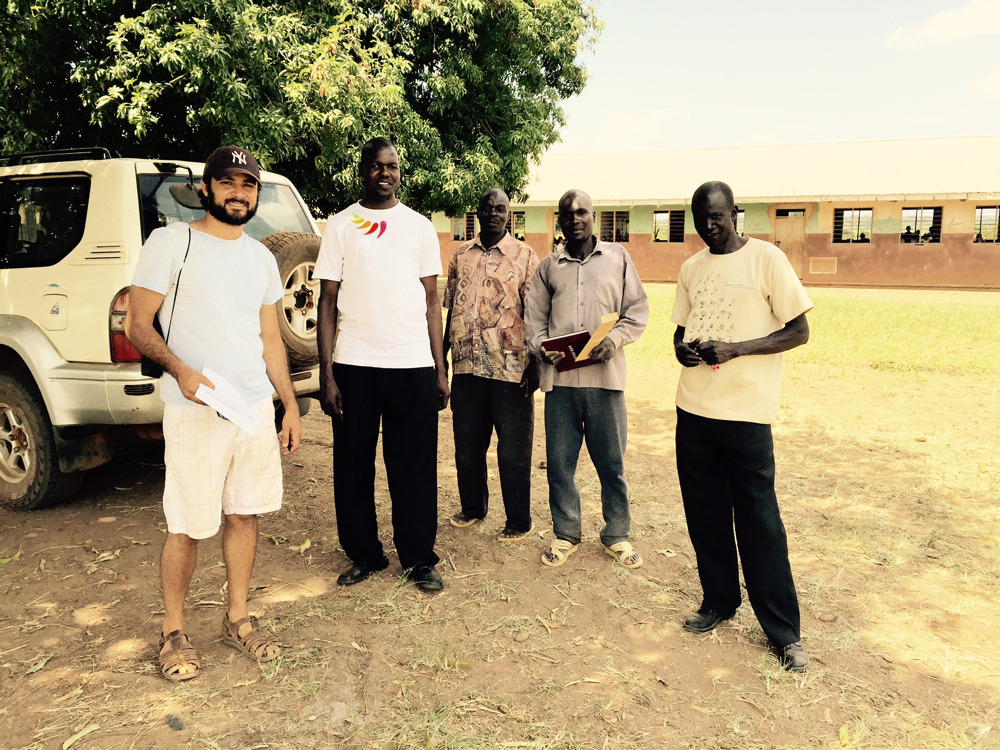
From left to right, Josh Levy the AP Peace Fellow, Ojok Simon the Project Coordinator in training, Geoffrey and his partner the construction contractors, and Otika Walter GDPU’s driver
Although, we still face developing world problems like inconsistent electricity. The contractor is afraid that the lack of consistent power might delay construction. He needs electricity to weld the steel doors onto the outside of the latrine as well as for the internal and external handrails. Regardless, he is trying his best to stay on track and we are grateful for his enthusiasm.
There were major rains recently as the mini-dry season seems to be coming to an end. Hopefully that doesn’t create more problems for the pathway’s construction. I saw them begin preparations for foundation alignment, but I am unsure if the rains caused problems for them. We will find out soon. This week is very important for us. We have the art competition coming up and construction is scheduled for completion by July 22. In due time, we will see what challenges lie ahead.
Posted By Josh Levy
Posted Jul 20th, 2015


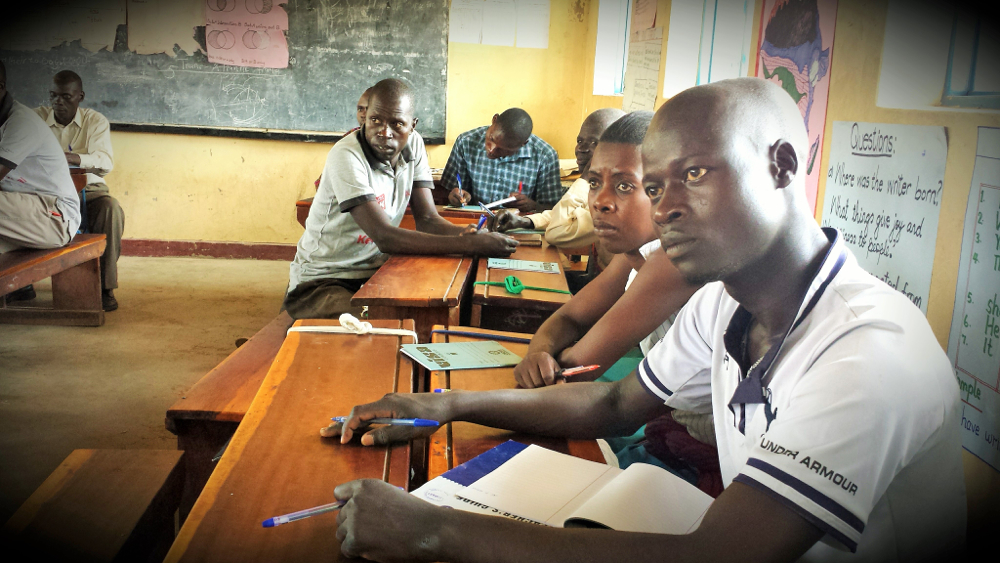
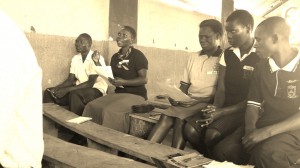
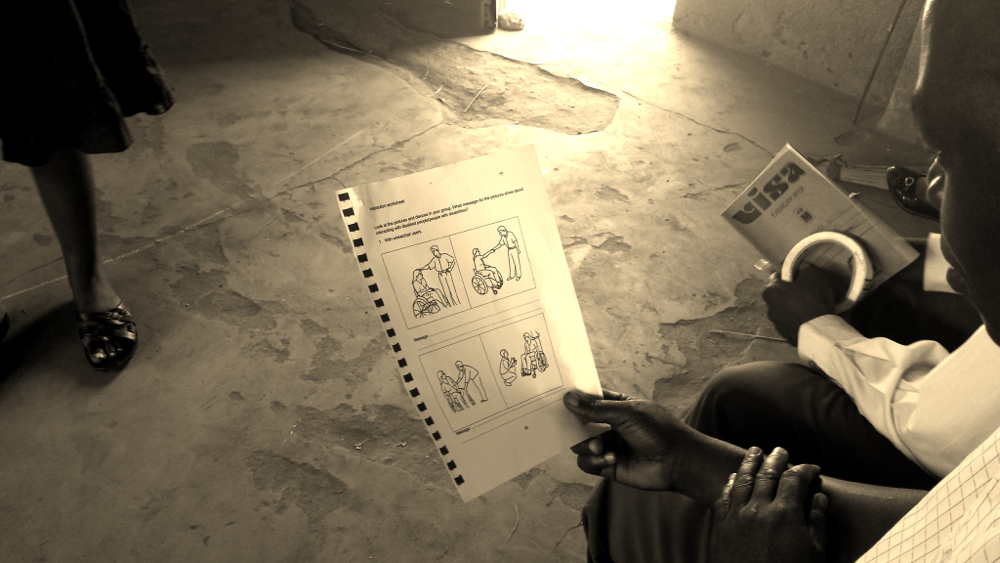
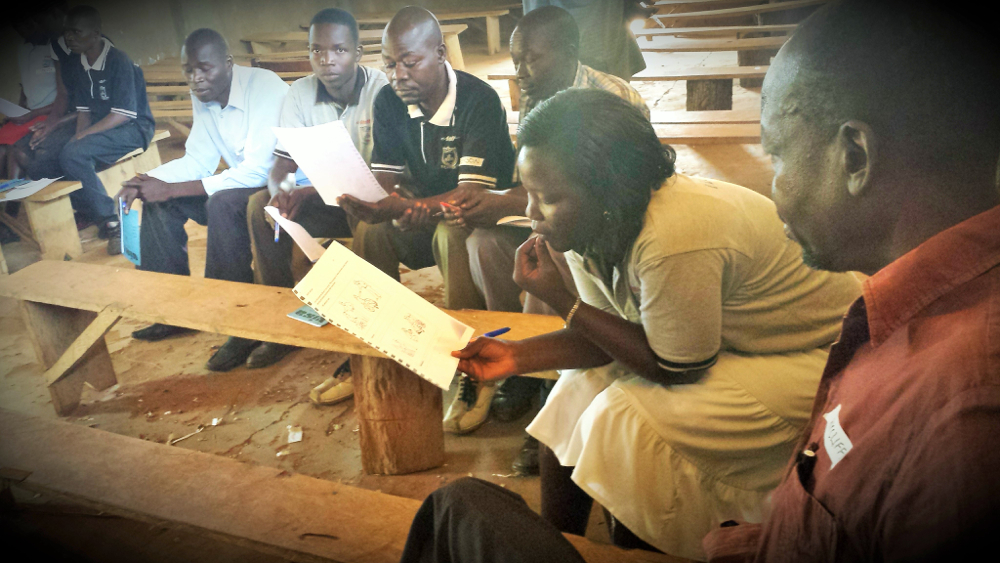
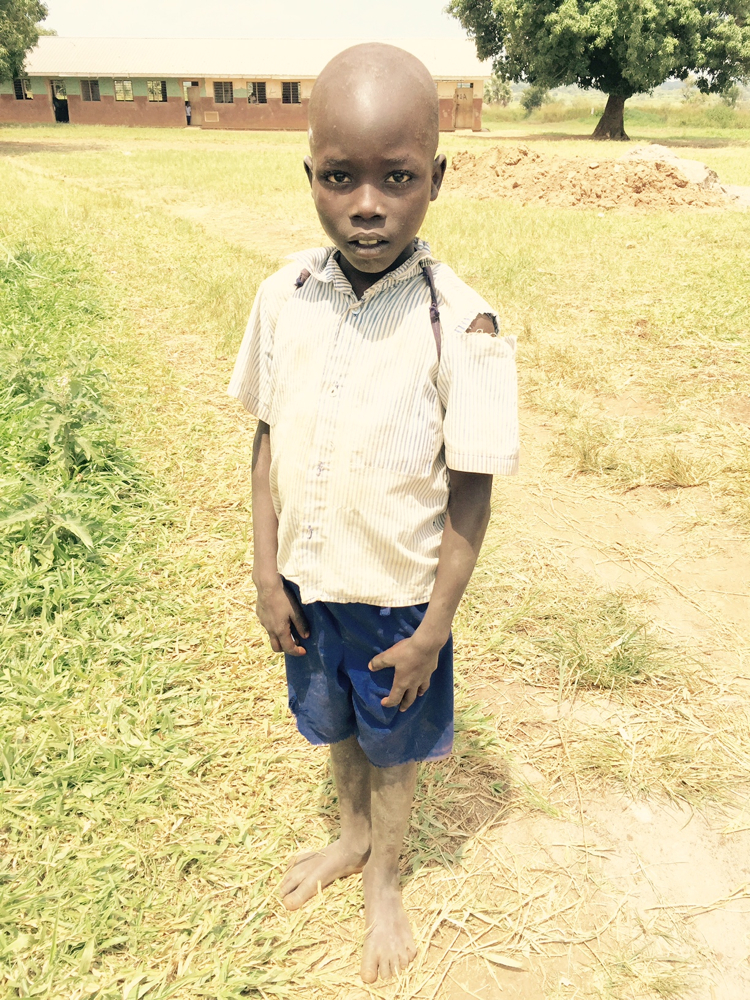
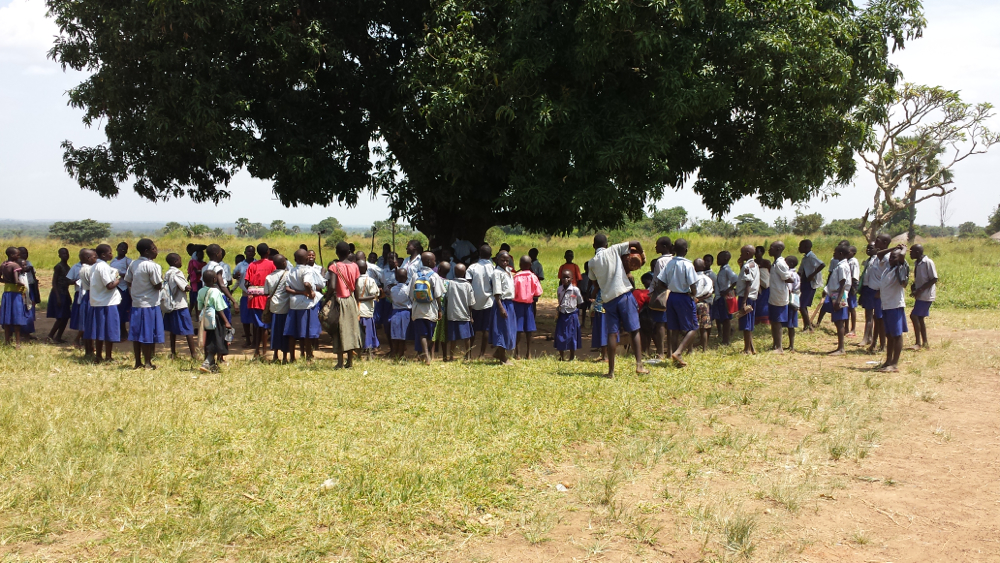
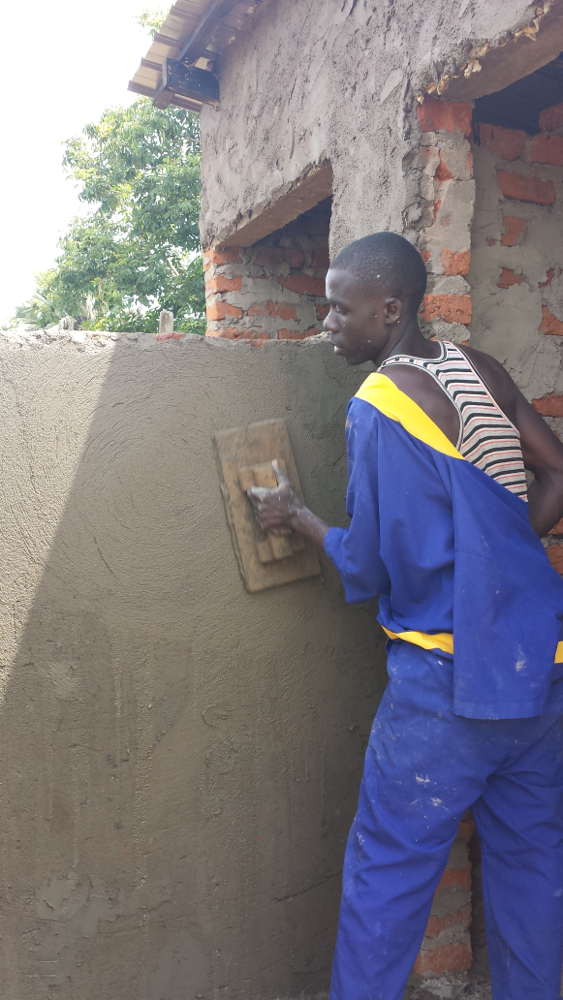

5 Comments
Alan Levy
July 23, 2015
Wonderful update and insightful in every respect.
Linda Nonemaker
July 30, 2015
Your creative incentives and gentle spirit show success. Keep up the great work
Kath Lawrence
July 30, 2015
That Red Dirt …amazing memories of my childhood! Josh…So wonderful to see the smiles you are putting on so many faces there of these kind and gentle people who have so little but give it all to strangers…who then become true friends. Your actions are a beaming light that they will gather round and benefit from forever! Keep up the True Work!